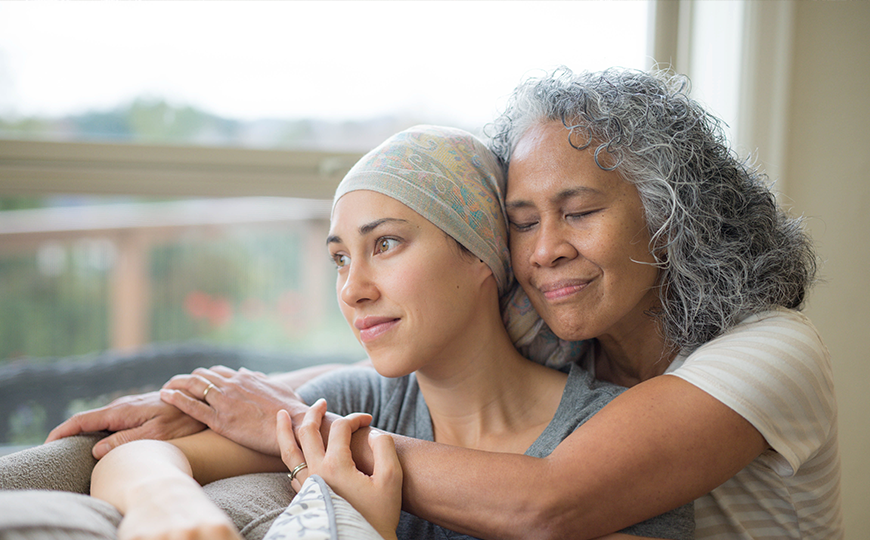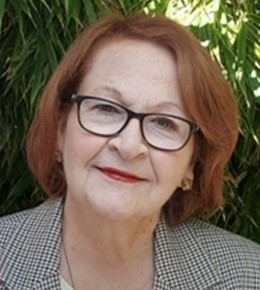https://www.infirmiere-canadienne.com/blogs/ic-contenu/2025/09/22/repondre-a-lappel
Nursing will always be in my blood, and I want to support the next generation
 istockphoto.com/FatCamera
istockphoto.com/FatCamera
Families need emotional support, information and guidance in anticipation of the events that are about to unfold to ensure their own comfort and peace is realized and to prevent undue suffering. This also promotes healing during and after the death of their loved one.
“What makes you want to continue nursing after so many years?”
That is the question a neighbour asked me after I told her that I was thinking about going back to do “a little nursing.” It was hard to give her a quick and easy answer. Instead, I could only say, “That is a good question. I will really have to think about that.” And the question sat with me. And sat some more. After all, it was not the first time I had retired. And each time I left nursing, I came back, realizing it was only a rest from heavy workloads, fatigue and bureaucracies that I needed. I thought this time was different.
 Courtesy of Terry Webber
Courtesy of Terry Webber
“My love for nursing now comprises providing care for people in need of a palliative approach to their care, keeping in mind their physical, mental, psychological, cultural, developmental and spiritual needs,” Terry Webber says.
I was wrong.
It amazes me that I still hear “the call” to provide nursing care after 47 years in the profession. I understand that some nurses may not consider it “a calling” for valid reasons many of which I too have experienced. Yet, the call back to nursing returns.
For me, “the call” is about caring for a person in ways that only nursing can provide. I’ve worked in Ontario and parts of British Columbia. I’ve had jobs in critical care, palliative care and other types of care. I’ve worked in hospitals, home and hospice residences, and community care centres. No one is stopping me from retiring. But something is keeping me here. It’s because at my core, I am a nurse.
Why do I still hear the call to provide nursing care?
With reflection being one of nurses’ practice competencies, I began the review process to understand myself and get to the heart of why I wanted to keep answering the call to practise nursing at this stage of my life. My first step was to define care as I know it in nursing and consider how this definition of care relates to my nursing practice.
Sister Simone Roach, in her 1992 research on the meaning of caring, described that while caring has innate roots in all humans, the core of nurses’ care comes from what we do (both the skills and techniques and the language we use as nurses to describe these skills and techniques) and how we do what we do (2002).
Six of the seven Cs that Roach describes as attributes of caring are compassion, competence, conscience, confidence, creativity and commitment, which are self-explanatory. The seventh C of caring is comportment, which describes the how of what we do. For example, it is not just what we are going to say to people when we are about to reveal unwanted news to them. It is how we walk into the room, how we sit down to be at eye level, how we keep our arms and hands open, use our words slowly and pause when needed, listening and watching for signs that tell us to shift what we are doing or saying. It is about instilling healing energy into the room, rather than taking it away.
When these caring attributes are demonstrated by the nurse, the art and the science of our caring merges, providing the person with the means not only to cope and recover from illness and suffering, but to experience comfort, wellness and healing even as they are dying.
This is how I have aimed to practise nursing, regardless of what field of nursing I was in — for the patient, the family or the nursing colleague. Positive feedback regarding my efforts has followed me throughout my career. I have been humbled and happy to be on the right track.
Now to be specific about what field of nursing I want to do at this point in my nursing career.
Embracing a palliative approach to care
What I do know is this: I do not want to nurse on a busy ward with more patients than I can reasonably and safely care for, like I did for so many years of my nursing career. At this point in my career, caring also does not come with any machinery or bells and whistles attached to the person, which is what the first half of my nursing career looked like as a critical care nurse.
Yes, I am grateful to have supported people as they moved from near death to recovery, learning through specialized training, expert peers and hands-on experience about the need to pay attention to the subtlest of changes in someone’s symptoms to prevent another health crisis in their already compromised state. This type of nursing required meticulous assessment and monitoring skills, immediate reporting and prompt intervention. These steps of the nursing process would serve as the basic framework for care, no matter what field of care I entered.
My love for nursing now comprises providing care for people in need of a palliative approach to their care, keeping in mind their physical, mental, psychological, cultural, developmental and spiritual needs, as well as their goals and wishes, revisiting these as their condition changes.
Some may say that there is little to do for someone whose condition is palliative. And I would say, “there is so much to do!” There is the physical component, such as keeping symptoms of suffering at bay, which can be demanding work. Bearing witness to and managing pain is not for the faint-hearted. Other symptoms, such as shortness of breath, or conditions, such as terminal restlessness, can reach levels that cause severe suffering. Getting on top of the symptom before the symptom gets on top of the person is paramount. Competency, calm, compassion and confidence are required to ride the tides with the person until the storm is over and the sea is calm again. Communication and coordination with others are key.
Palliative care also means attending to the needs of the family caregiver. Families need emotional support, information and guidance in anticipation of the events that are about to unfold to ensure their own comfort and peace is realized and to prevent undue suffering. This also promotes healing during and after the death of their loved one.
According to my peers, I still have the competencies to care for a person who is nearing the end of their life. I will continue to take steps to ensure that how I practise is based on best practices, through ongoing learning from palliative care experts.
In providing the final gifts of comfort to someone exiting this world, the gifts that I have received over the past 25 years have been immeasurable. When care is performed using the “Cs” of care described by Roach (2002), it provides a quiet stillness felt inside of me that is similar to watching the sun as it seeps through the clouds and spreads across the vast sky in magnificent shapes and colours. You come to realize that in Mother Nature’s miracle, something powerful is happening, an ebb and flow of life that is breathing through you and with you in powerful ways. That power, for me, is love. The experience of that power fuels me to continue nursing in its finest form.
Back to my question: why am I doing this?
Have I answered the question, “What makes me want to continue nursing after so many years?” Or is the emerging question that plagues me now — “Is it time to fully retire this time?” — a more valid one?
The exercise has helped me confirm that nursing will always be in my blood. It has also identified that there is one more compelling reason to stay.
While the focus has always been the patient at the centre, priority needs to be given to supporting nurses and the nursing profession as well. Given the unprecedented shortage of nurses and the lack of mentorship available, especially in the area of knowledge translation, there is a great need for nurses who are experts in their fields to support newer nurses, enable them to thrive in today’s nursing climate and thereby preserve the health of our health-care system. Who better than semi-retired nurses to help support these causes?
In this moment, the practice and power of nursing is still calling me. I must answer, in whatever small way I can.
As I renew my registration for another year, there is one more “C” of care that will be needed. It is courage to continue to carry out the tasks that lie ahead. There is still so much to do.
Reference
Roach, M. S. (2002). Caring, the human mode of being: A blueprint for the health professions (2d rev. ed.). Ottawa: Canadian Healthcare Association Press. Copy from Archives of Caring in Nursing, Christine E. Lynn College of Nursing, Florida Atlantic University, ARC-005 Sister M. Simone Roach Papers, 1958-2005, used by permission. https://www.fau.edu/nursing/documents/caring-the-human-mode-of-being.pdf
Terry Webber, RN, BSPN, was formerly a registered psychiatric nurse and a CNA-certified nurse in hospice palliative care. She is also a 2014 recipient of the College of Registered Nurses of British Columbia’s Nursing Excellence Award in clinical practice in palliative care nursing. She is an advocate for the value of what retired nurses can bring to the health-care system through her volunteer work with the Nurses and Nurse Practitioners of BC to develop a retired nurses network, with the aim of creating a space where willing and able retired nurses can stay connected and access information, tools, resources and support.
#opinions
#career-stage
#intra-professional-collaboration
#nurses-health-and-well-being
#nursing-practice
#nursing-roles
#recruitment-and-retention